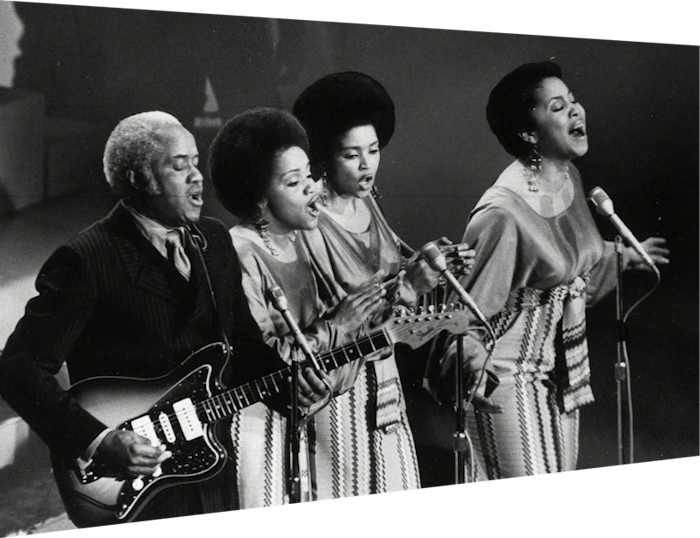Introduction


When From Where I Stand: The Black Experience in Country Music originally appeared in 1998, it was immediately greeted with both a warm reception and critical acclaim. It quickly went out of print, however, and in the decades since, used copies have been both difficult and expensive to acquire. This expanded and updated edition, reissued upon the twenty-fifth anniversary of its initial release, will return the boxed set to circulation and, with the addition of two new essays and another compact disc, also bring the story up to the present.
Like the original, three-disc anthology, this new four-disc edition explores the complex, important, and fascinating ways that Black artists have contributed to country music and have, in turn, been influenced by it. Disc 1, “The Stringband Years,” highlights the pre-World War II era, when country influences often coexisted with blues, ragtime, and other musical styles within African American artists’ repertoires. Disc 2, “The Soul Country Years,” consists almost entirely of rhythm & blues renditions of country songs. Disc 3, “Forward with Pride,” traces the development of African American country music in the modern era, beginning with Charley Pride’s rise to superstardom in the 1960s. New to this updated edition of the collection is Disc 4, titled “Reclaiming the Heritage.” This additional disc highlights a new wave of mainstream country hitmakers, along with a number of talented artists who have found success in folk, bluegrass, and Americana music, during the first two decades of this millennium. Placing the music in context, the revised and expanded booklet notes contain excerpts from artist interviews, biographical sketches, selection notes, and a series of essays by prominent country music historians and journalists, including newly commissioned essays by Rhiannon Giddens and Rissi Palmer. Also new are the biographical and selection notes for Disc 4.
Except for the additions mentioned above, some minor resequencing of tracks on Disc 1, and the inclusion of a few new tracks on Discs 2 and 3, From Where I Stand remains largely as it originally appeared. The booklet notes have been only lightly revised, reorganized, and updated, with minor errors corrected and the term Black now capitalized, according to current usage. The notes have also been updated to reflect the passing of several of the featured artists, including Charley Pride, who died in 2020. Otherwise, the original four essays stand largely as they appeared in the first edition of the anthology, a kind of time capsule of the late 1990s. Indeed, the essays so closely reflect the era in which they were written that some elements of them now appear dated. The surprise with which the existence of Black country musicians and especially fans is greeted and discussed, for example, may strike readers today as naïve and amusing. But that reaction was genuine, indicative of a time when Black musicians and fans were perceived as a novelty because, historically, they had been largely ignored by industry executives, scholars, journalists, and fellow fans, and, thus, remained invisible and unheard within the world of country music.
Although commercial, social, and even academic forces have long conspired to keep American roots-music idioms falsely segregated from one another, the singers and musicians themselves have always borrowed liberally from one another across racial lines. The point of this set is to emphasize the degree to which that borrowing has resulted in, or results from, Black artists performing country music. Sometimes the borrowing has been a matter of parallel instrumentation and folk music substyles. Other times it’s been a case of adapting country material to an R&B idiom. And still other times it’s been a direct case of Black artists performing straight-ahead country music.
This collection is by no means the last on the subject of African Americans and country music. Rather, we see it as the continuation and, indeed, expansion of a conversation the original boxed set helped initiate. Ultimately, we hope this anthology creates a conceptual framework within which such stylistically diverse performances as the Mississippi Sheiks’ “Sitting on Top of the World,” Ray Charles’s “I’m Movin’ On,” Charley Pride’s “Kiss an Angel Good Mornin’,” and Mickey Guyton’s “Black Like Me” will be understood as historically connected by the common thread of country music. This is a unified set, but it is also a celebration of diversity in every sense of the word.

